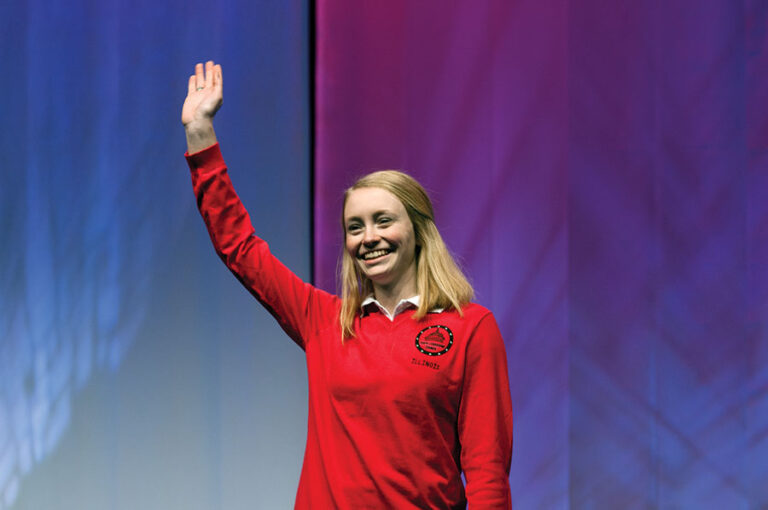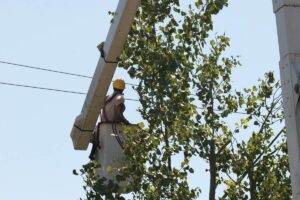
If you’re a teenager, seventy-five years seems like an eternity. If you’re middle-aged you realize it’s not so long after all. And if you’re a senior, you’re wondering where did all that time go? As we look at the rural electric program many of our co-ops are just now celebrating a milestone of 75 years of service to rural Illinois. The first electric cooperative was founded in 1936 and so between that period and 1940 all 25 electric cooperatives were formed in Illinois.
Just this past month I had the privilege of attending Norris Electric Cooperative’s annual meeting in Newton, Ill. Norris Electric gets its name from Senator George Norris, a U.S. Senator from Nebraska, who was the driving force for creating legislation that resulted in the Rural Electrification Administration, better known then and now as the REA.
We forget today what it was like when there were no lights in the countryside. It was just a dark place. Rural living required a lot of hand labor and hard work the way it had been done for centuries. Those early leaders probably did not realize the transformation that was happening in 1936 and the full extent of what those power lines would mean to rural people.
It took visionaries, it took shear will and determination and oftentimes that came from a single individual. It may have been the county cooperative extension agent. In the case of Norris Electric Cooperative it was leaders from the Jasper County Farm Bureau and a Catholic priest, Father Nell from Island Grove, who believed his rural community needed the same benefits of electricity that folks in town enjoyed. His church needed electricity and so did his flock. Many times you’ll find that it was women who saw the true need for electricity and provided the determination and leadership to make it happen.
Some rural leaders with this character of determination are still with us. An example in that video was Delbert Mundt. Delbert served long and hard on his electric cooperative board and also was one of the founders of the largest rural water cooperative in Illinois, EJ Water Cooperative, based in Dietrich, Ill. He just had a tenacious desire to bring electricity, and then water, to rural Illinois. Thank you Delbert.
It makes you pause and wonder, who will replace those leaders in the next decade or the next 50 years? Who will be that Father Nell or Delbert Mundt who rises to the challenge? That’s why youth leadership programs are so important, programs like 4-H, FFA, Boy Scouts and Girl Scouts come to mind. But the rural electric cooperatives also have a youth leadership program. We sponsor Youth Day at the Capitol, which is a trip to our state capital that is held in April each year.
The transformation that took place in the late 1930s was dramatic when electricity came to rural homes. From a single light bulb hanging from the ceiling to the electric motors that did so much for easing farm labor, we’ve been successful in providing rural electric service, so much so that it is now taken for granted.
Today, electric cooperative leaders are not resting with that accomplishment. The boards of directors and cooperative employees are still looking for ways to improve the quality of life in rural Illinois. A good example we’ve already mentioned is rural water systems. Jobs are also critical and many cooperatives have partnered with the USDA and its Rural Economic Development Loan and Grant (REDLG) program, which helps retain and create jobs in rural communities.
It’s no secret that the next big effort will be bringing broadband service to rural areas. This new infrastructure and service is transformational just like electricity was in the 1940s. Prairie Power Inc., a generation and transmission cooperative serving central Illinois, recently formed a consortium with several rural telephone cooperatives and a rural cable provider to expand fiber optic service throughout the rural areas they serve. This has a double benefit of providing secure smart grid communications infrastructure to all the co-op’s substations, and also allowing schools, libraries, hospitals and government services in rural communities to have the same high speed broadband service enjoyed by those in metro areas. From there it will grow to expand the economic development opportunities in these rural areas.
Over the past 75 years the mission has been the same…it has been locally-owned, locally-governed cooperatives who have made it their business to improve the quality of life for the members they serve. That is still taking place in rural America today. The needs will change, the leadership will change, but the principles and purpose will remain the same. Amen!









